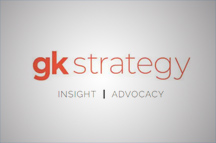GK Advisers Noureen Ahmed and Annabelle Black discuss how the public affairs sector can improve inclusivity and share some thoughts on their own experiences as women working in public affairs.
Much more work is needed to represent and retain women working in public affairs
When considering how public affairs can be more inclusive, it is important to acknowledge the historical exclusion of women in politics more broadly. Women make up just 27% of the Cabinet, 35% of the House of Commons, and until 1997, there had never been more than 10% of seats held by women. However, the narrative has been changing as MPs speak up about their experiences in Parliament – an inquiry was launched into Sexism in the City in 2023, and there are currently 226 female MPs, the highest number ever to sit at the same time.
Whilst progress is being made in Westminster, the public affairs sector still has room to improve. Men continue to dominate senior roles in the industry, with just 22% of senior management teams being made up of more women than men. Whether it is because of caring responsibilities, inflexible workplaces, or gendered ageism, women are underrepresented in senior positions and quitting at the peak of their careers. This trend exacerbates financial disparities, as women typically retire with average pension savings of £69,000, compared to men with £205,000.
For these reasons, the public affairs sector must work towards bettering their flexible working and menopause policies, defeating sexism and ageism in the workplace, ensuring full transparency about pay structures, and offering benefits such as parental leave and childcare assistance. Gender diversity in senior leadership teams is imperative for representation, reducing the gender pay gap, and challenging gender stereotypes. It also provides young women aspiring to work in the sector with role models, helping them navigate the industry and the barriers they may face.
Public affairs is an exciting industry to work in. As advisers at GK Strategy, we enjoy working with a range of clients and seeing firsthand how politics sits at the heart of what businesses want to achieve. Equally, the challenge of developing the right support programme for clients and seeing the difference thoughtful policymaker engagement makes for them is fulfilling.
Whilst we feel that progress is starting to be made in the industry to improve inclusivity, there is still a discernible difference between men and women in the sector, particularly when it comes to confidence, career progression, and pay discussions.
It is imperative that we make the public affairs space as inclusive as possible for all women. There are many women who are conscientious, ambitious, and determined and should be provided with the right support to help bring their goals to life. I’m grateful to be working at GK, working with women in senior and junior positions, all of whom are confident, inspirational, and truly brilliant.














